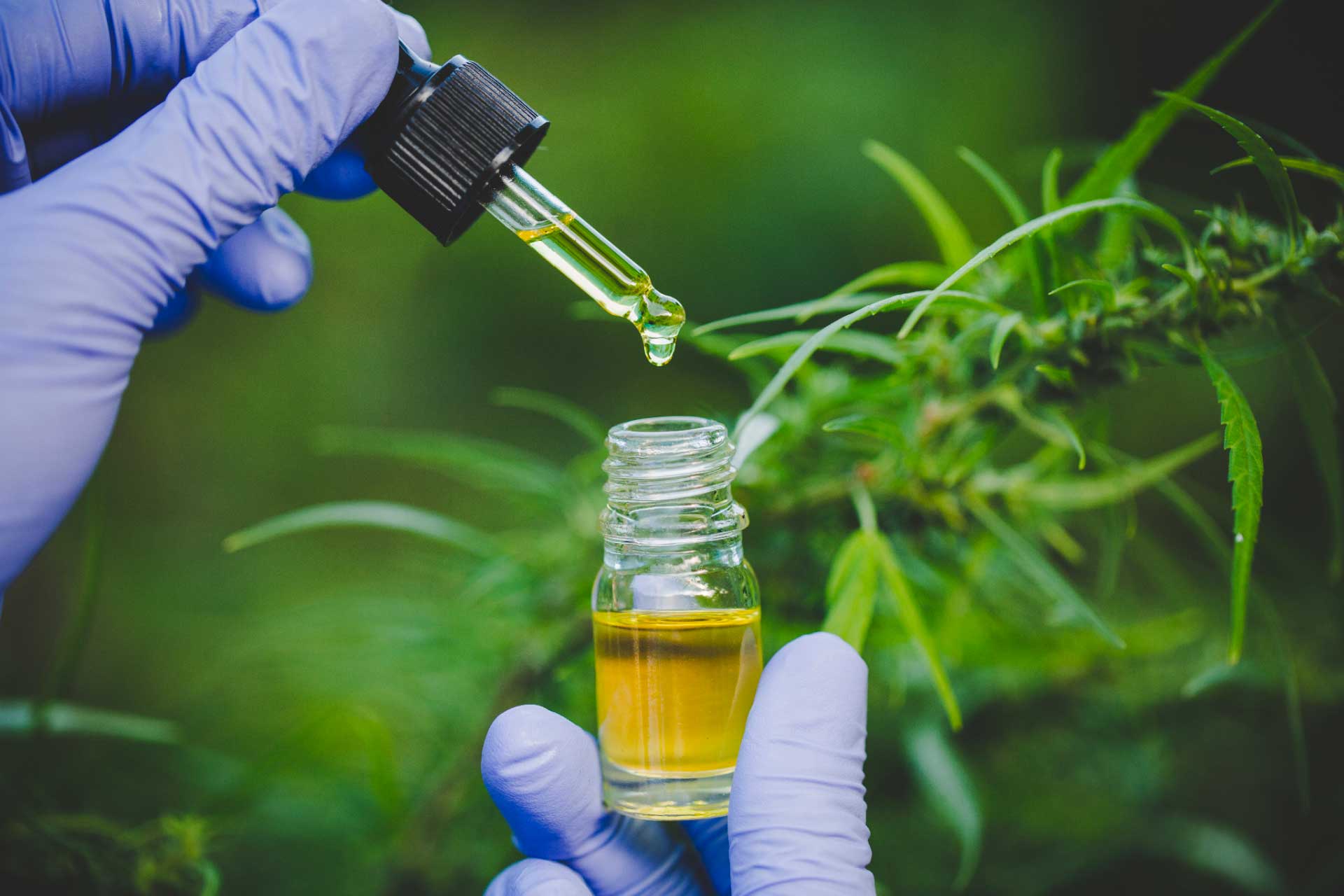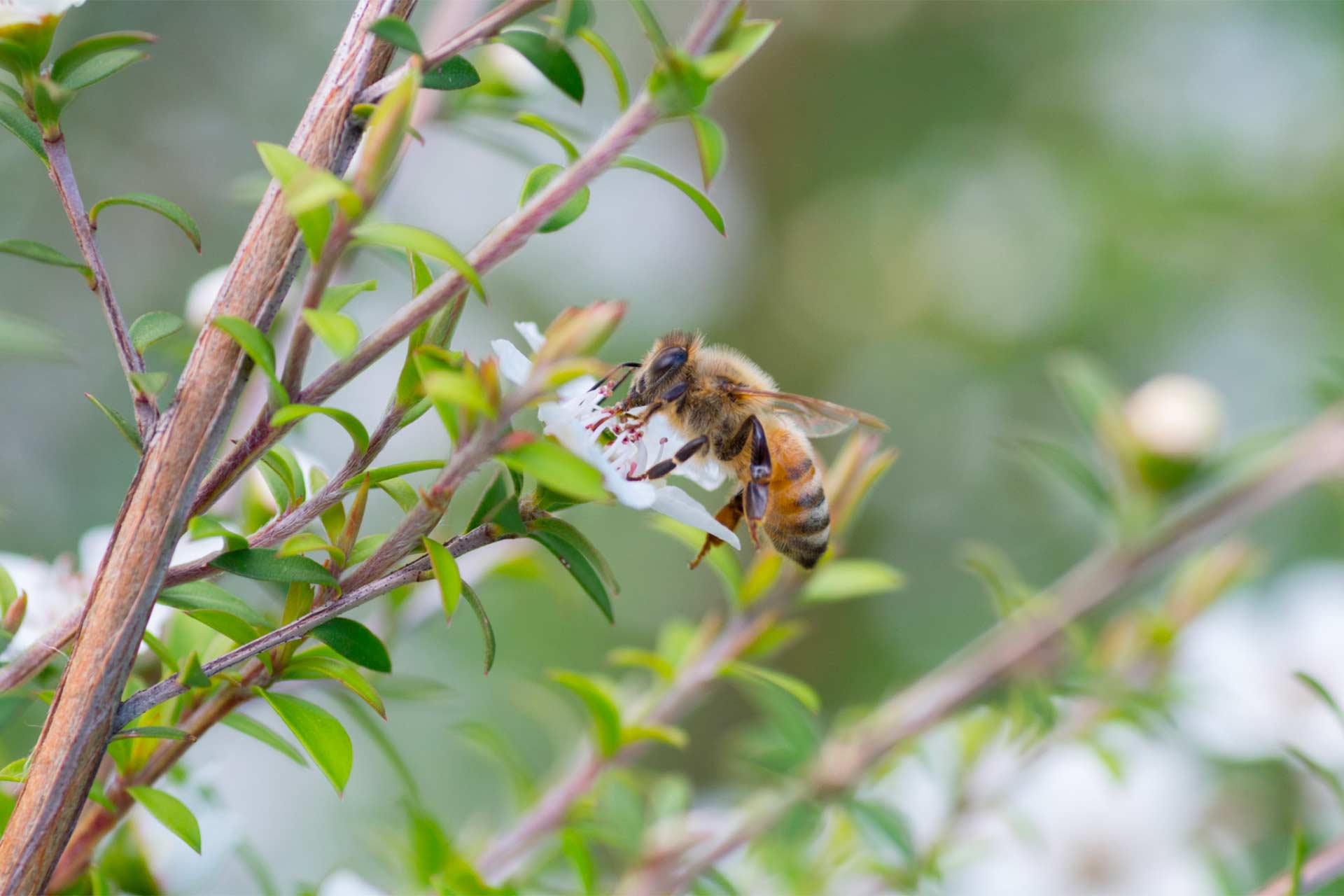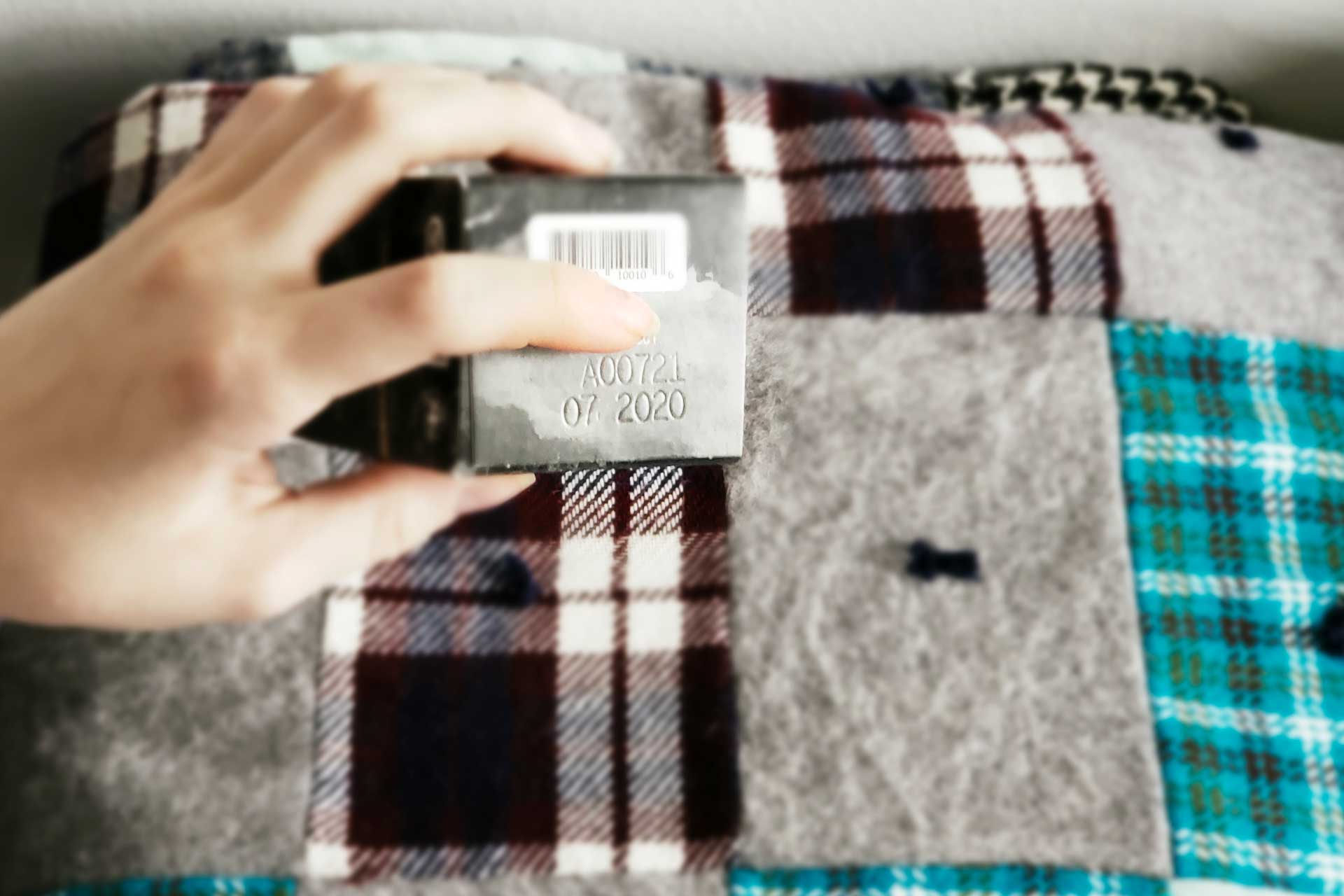Answering Your Delta-8 Questions
Written by Eloise Theisen, MSN, AGPCNP-BC, and Whittney Wacker, BSN, RN
Delta-8: An increasing popular cannabinoid on hemp product menus
In recent months, our Leaf nurses have gotten a lot of questions about Delta-8, which is sold in many states. Though Delta-8 is made from hemp, its effects are very similar to Delta-9 found in cannabis. Both Delta-8 and Delta-9 are forms of tetrahydrocannabinol (THC), which has an intoxicating effect, though the effects of Delta-8 are said to be less intense.
Hemp CBD companies have been adding this cannabinoid to their menus, offering it as a new option. Even though Delta-8 THC is readily available, quality education around this cannabinoid is missing. Consumers are confused, with questions like:
- What is Delta-8?
- Will Delta-8 get me high?
- Will Delta-8 help manage health conditions?
- Is Delta-8 legal?
- Will Delta-8 cause me to fail a drug test?
- How do I safely use Delta-8
Below, we’re sharing answers to these common questions about Delta-8. Of course, we always encourage you to call our free RN-staffed Leaf411 hotline at 844-LEAF411 (844-532-3411), as well!
What is Delta-8?
Delta-8 THC is found naturally in the cannabis plant, but only in small amounts. It occurs through degradation of Delta-9 THC. The higher amounts of Delta-8 THC seen on the market are coming from hemp. According to Project CBD, “Nearly all the Delta-8 on the market today is produced by chemically tweaking CBD in a laboratory. In other words, it is not directly extracted from the hemp plant but is synthesized from CBD that is directly extracted from the plant.”
In order to get the larger amounts of Delta-8 THC found in vapes, gummies and tinctures, CBD is converted to an isolate. From there, a solvent is added to liquify the isolate and an acid reagent is added to create a chemical reaction that produces the Delta-8 THC.
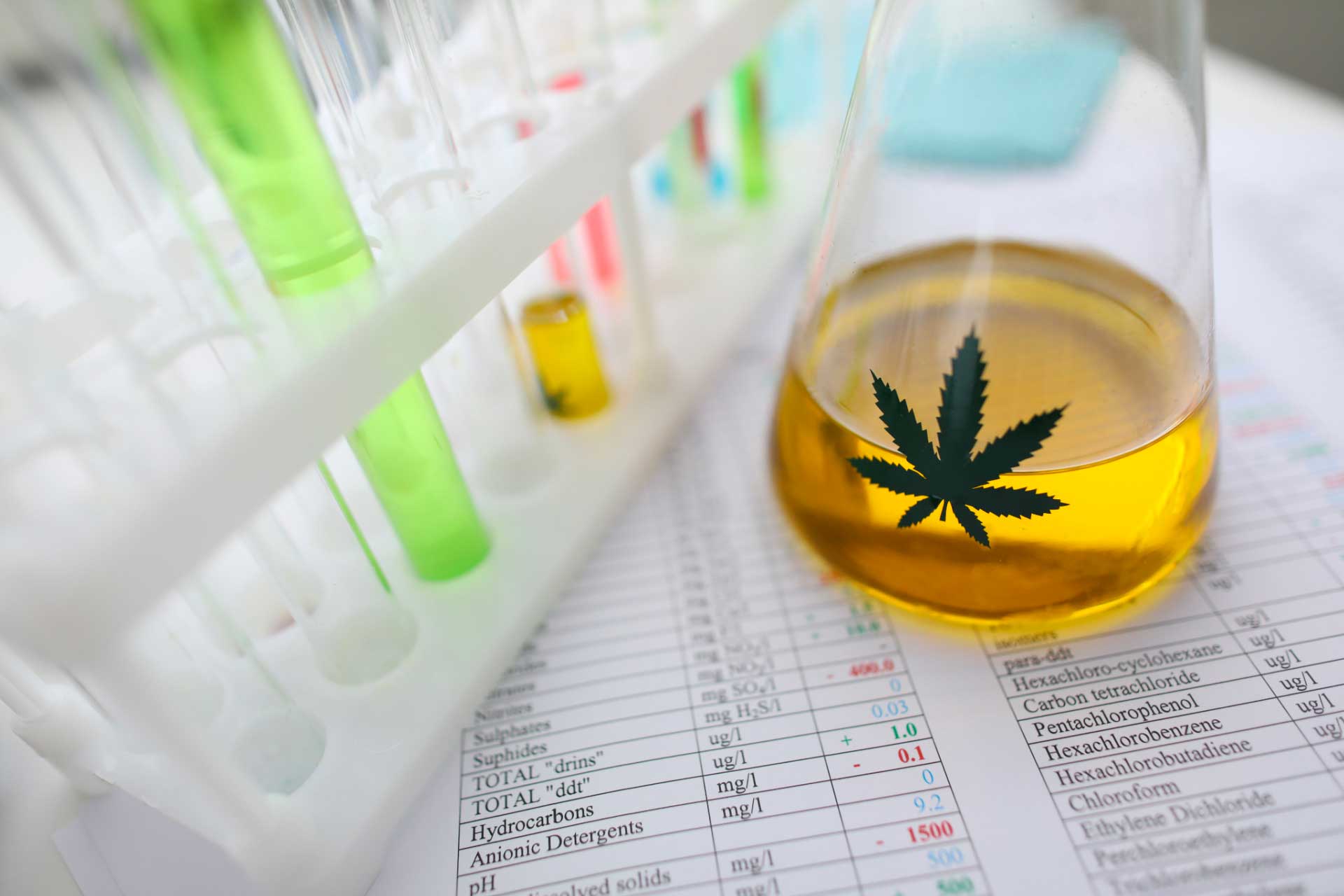
How are Delta-8 products tested for potency and safety?
Testing for Delta-8 THC in products and people is another gray area. There is no limit on how much Delta-8 a product can contain. However, in order to comply with the 2018 Farm Bill, these products must also meet federal hemp guidelines with less than 0.3% of Delta-9 THC (the other THC found in larger amounts in marijuana) at dry weight to be compliant.
Leafreport recently tested 38 products to see how much Delta-8 THC was in the product. Twelve out of the 38 products tested within 10% of the label claim, which represents 32% of the total products tested. Additionally, of the 38 products, 20 of them tested above the legal limit for Delta-9 THC.
When looking at companies who are selling Delta-8 THC, be sure to choose ones that provide a certificate of analysis (COA). Without a COA, it is hard to know how much THC or other cannabinoids may be in the product. The COA is the best way to verify the claims made on the company website.

Will Delta-8 get you high?
Radicle Health describes Delta-8 THC as an isomer (same formula but a different arrangement of atoms) of Delta-9 THC with subtle differences.
We know that Delta-8 THC interacts with our endocannabinoid system (attaches to the CB1 and CB2 receptors just like Delta-9), and research suggests that it is about two-thirds as potent as Delta-9 THC.
It is likely that consuming Delta-8 THC will produce similar euphoric and impairing effects to Delta-9 THC. Consumers may also experience dizziness, drowsiness, increased appetite, feelings of relaxation, dry eyes and dry mouth.

Is Delta-8 good for pain, inflammation, insomnia or other concerns?
Research is sparse on the medicinal benefits of Delta-8 THC. A total of nine studies have been completed. Five animal studies, two meta analyses, one lab study and one human trial with eight patients. Those studies looked at Delta-8 THC to treat pain, inflammation, nausea and vomiting, and appetite stimulation and the majority were inconclusive.
With limited data, it is difficult to draw conclusions as to whether Delta-8 THC is effective at treating pain, inflammation, appetite and nausea and vomiting. Yet we see claims all over the internet promoting Delta-8 THC for a variety of conditions. The truth is the evidence is not there to support most of these claims.
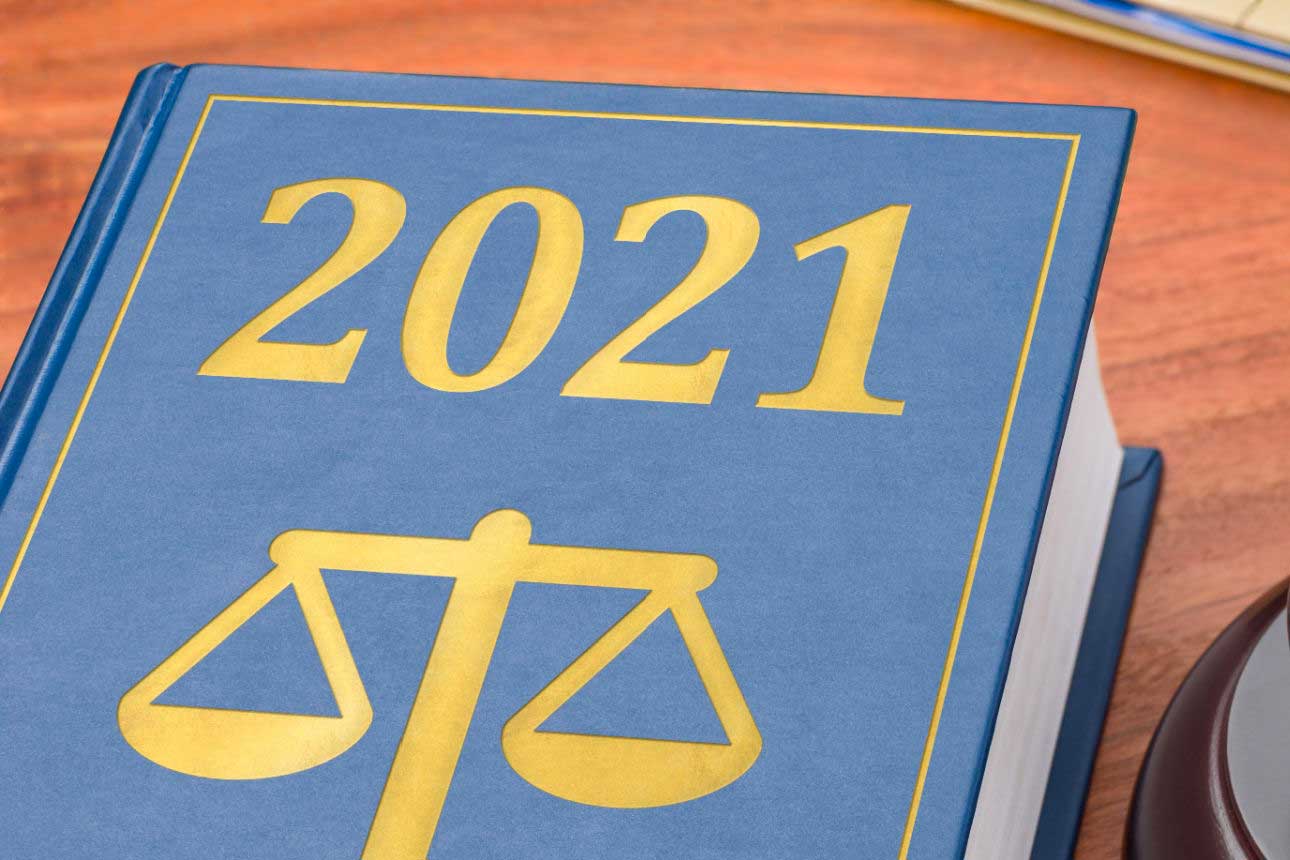
Is Delta-8 legal in your state?
Despite the lack of evidence, Delta-8 THC products have hit the market and consumer interest has exploded. Products range from gummies, vapes, flowers and tinctures and are available online or through local retailers.
Delta-8 THC is being sold under the 2018 Farm Bill which legalized hemp. Whether or not this is legal is still a bit of a gray area. The Farm Bill does not allow for synthetic cannabinoids and the current process for the majority of Delta-8 THC on the market goes through a synthetic process converting CBD to Delta-8 THC. Additionally, the Drug Enforcement Agency (DEA) stated in an Interim Final Rule, that synthetically derived substances are a schedule I drug.
It is important to know your state laws on cannabis and hemp. Some states have started to enact legislation banning Delta-8 THC. Here is a map of states that have banned Delta-8 THC, as of May 21, 2021:
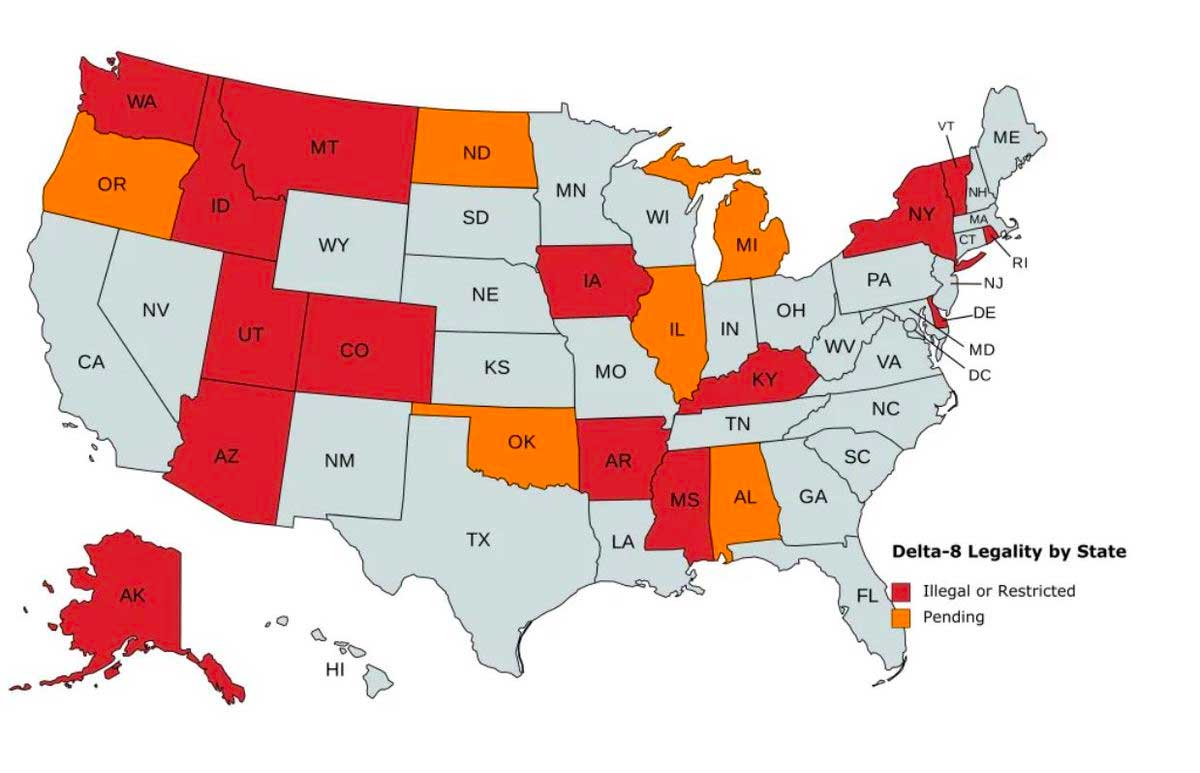
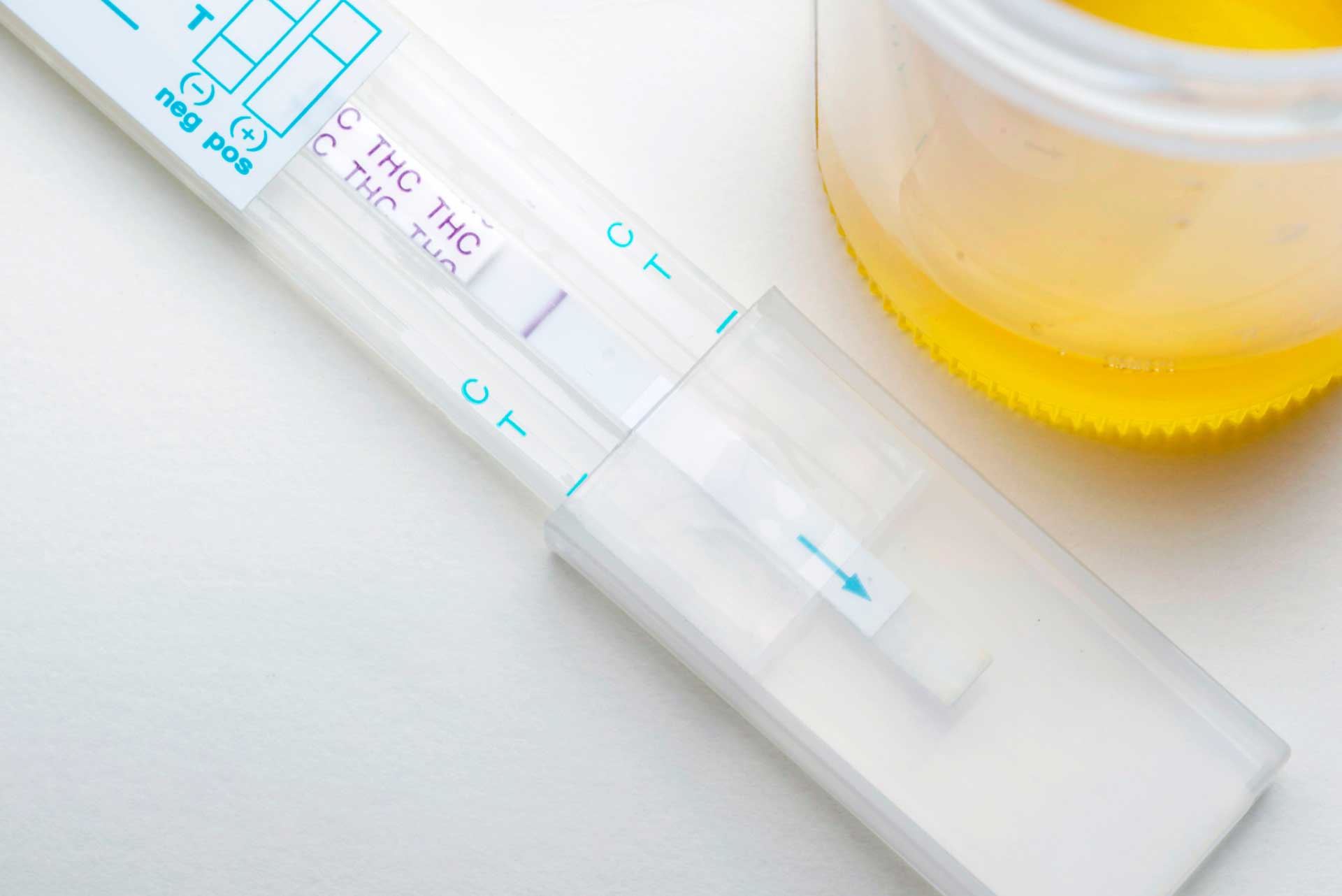
Will Delta-8 show up on a drug test?
The biggest question that remains is whether consuming Delta-8 THC will lead to a positive urine drug test. If you look on the internet, you will find a variety of blogs that claim you will and others that claim you will not.
Some of these websites state that all forms of THC can be detected in a urine drug screen and it doesn’t matter whether it is Delta-9 or Delta-8. However, there is no science to validate this claim. It gets even more complicated when you consider that most Delta-8 THC products are synthetic. Synthetic cannabinoids are not likely to be detected in a urine drug screen.
At this time, it is difficult to say with certainty whether current drug panels will detect Delta-8 THC in the urine. There is a chance that the product may contain levels of Delta-9 THC that would be detected in a urine drug screen. Until we know more about testing for Delta-8 THC, it is important to err on the side of caution and avoid consuming cannabinoids if you cannot afford to fail a drug screen.
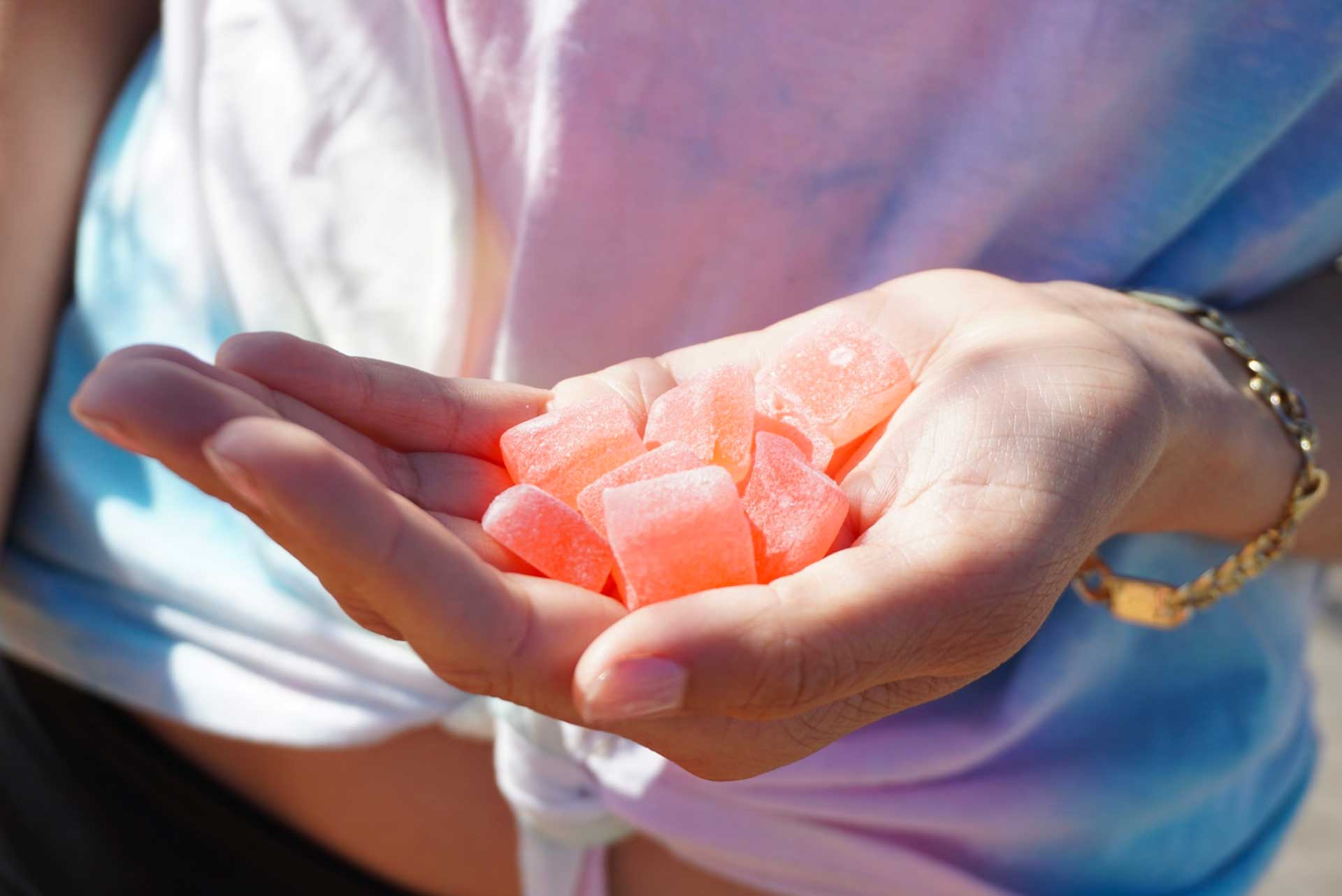
How to use Delta-8 products
Consumer interest and use has outpaced education and research once again. While it appears that Delta-8 THC is similar to Delta-9 THC, there are still a lot of unknowns with regard to side effects, dosing and clinical applications.
For those who are curious and want to explore Delta-8 THC, be sure to look for products that are lab tested and always start low and go slow when increasing your dose.
- We suggest starting with a dose between 2mg and 5mg of Delta-8 THC.
- You may need to split a single gummy into several pieces or only use a small amount of a tincture to get a low dose.
- Remember that cannabinoids taken by mouth may take between 30 minutes and 3 hours before you feel any effects. One of new consumers’ biggest mistakes is thinking that the Delta-8 is not working and ingesting more, before the original dose had time to take effect. This can result in you feeling more intoxicated than desired.
- While Delta-8 and Delta-9 are similar, they are not the same, and many consumers report different effects from each. Even if you’re an old pro with cannabis products containing Delta-9, we suggest starting low with Delta-8 so that you can get a sense of how your body reacts to the cannabinoid.
Not sure how to split a Delta-8 edible into smaller doses? We know it can be confusing! Call our Leaf411 hotline at 844-LEAF411 (844-532-3411) and our Leaf Nurses will guide you on how to split your edibles, tinctures or other products into an optimal starting dose.
Leaf411 can help answer your Delta-8 questions
As the science around Delta-8 continues to grow, our fully-licensed nurses on the Leaf411 hotline are ready to educate and update you on this potentially therapeutic cannabinoid, regardless of whether you live in a legal state or not. Call us at 844-LEAF411 (844-532-3411).
Article Sources
- https://www.projectcbd.org/politics/delta-8-thc-controversy
- https://www.hempgrower.com/article/delta-8-cannabidnoid-how-its-made-extraction-testing-measuring/
- https://www.leafreport.com/education/delta-8-thc-products-market-report-11339
- https://www.radiclehealthcare.com/post/understanding-delta-8-thc
- https://www.radiclehealthcare.com/post/understanding-delta-8-thc
- https://doi.org/10.1002/cpt1973143353
- https://www.congress.gov/bill/115th-congress/house-bill/2/text
- https://harrisbricken.com/cannalawblog/is-delta-8-thc-a-controlled-substance-yes-no-maybe/
- https://mogreenway.com/2021/05/11/delta-8-legality-map/
- https://www.redwoodtoxicology.com/docs/services/3370_sc_faq.pdf
Manuka Honey-Infused CBD: A Natural Wellness Boost
Questions about CBD and Manuka honey? Our blog has answers about the potential anti-inflammatory and antibacterial properties of these two powerful natural compounds
Medically reviewed by Katherine Golden, RN, and Eloise Theisen, NP
Written by Denise Rustning
Hemp CBD is showing promise for managing a wide range of health concerns, from inflammation and pain to stress and sleepless nights. Some hemp brands are even adding familiar ingredients like melatonin, turmeric, skullcap and other natural compounds to create products tailored to these different needs and preferences.
On this front, one of our members, Bespoke Extracts, recently launched an updated Manuka honey-infused CBD tincture and topical cream. Their product launch piqued our interest in the antibacterial and anti-inflammatory effects that both hemp and honey share.
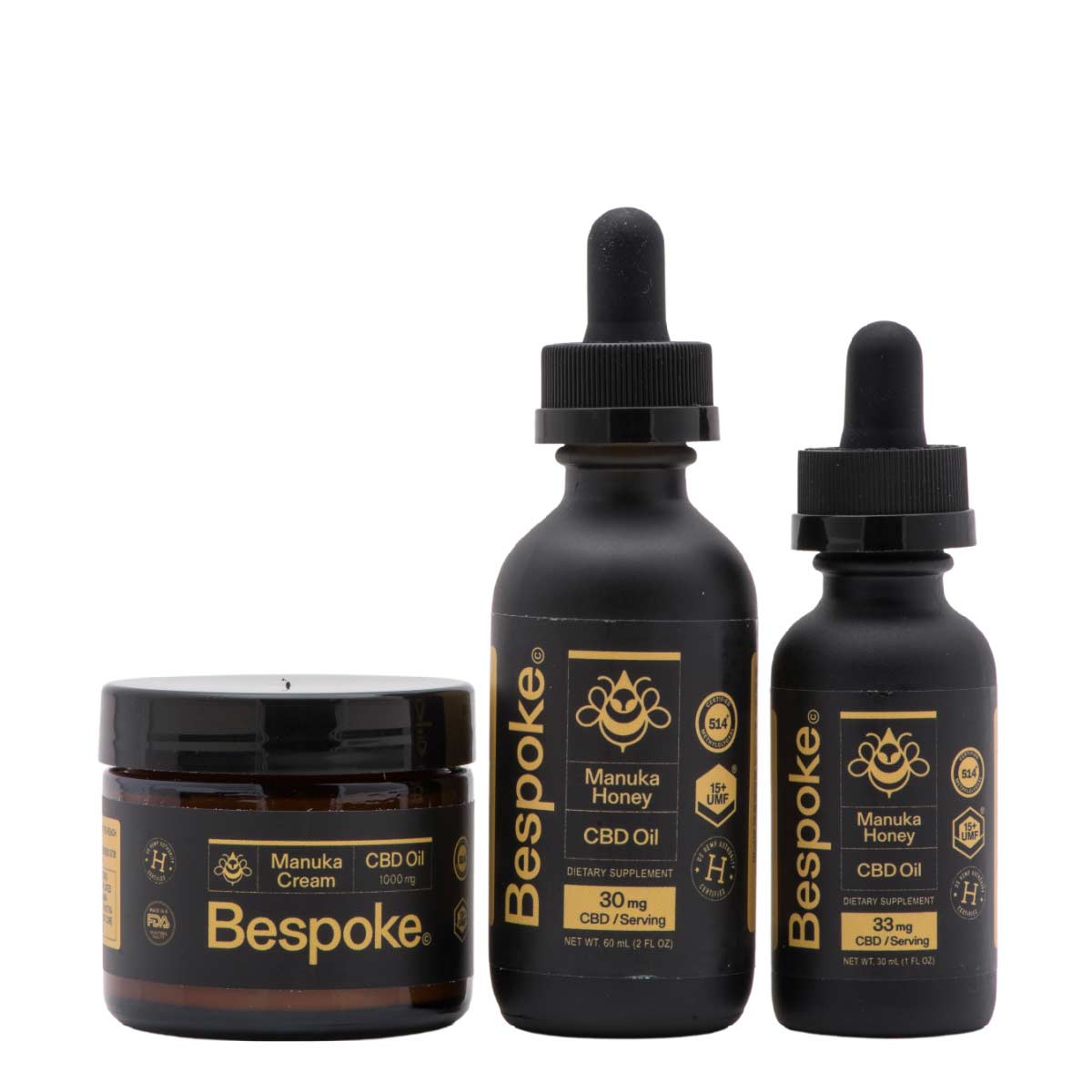
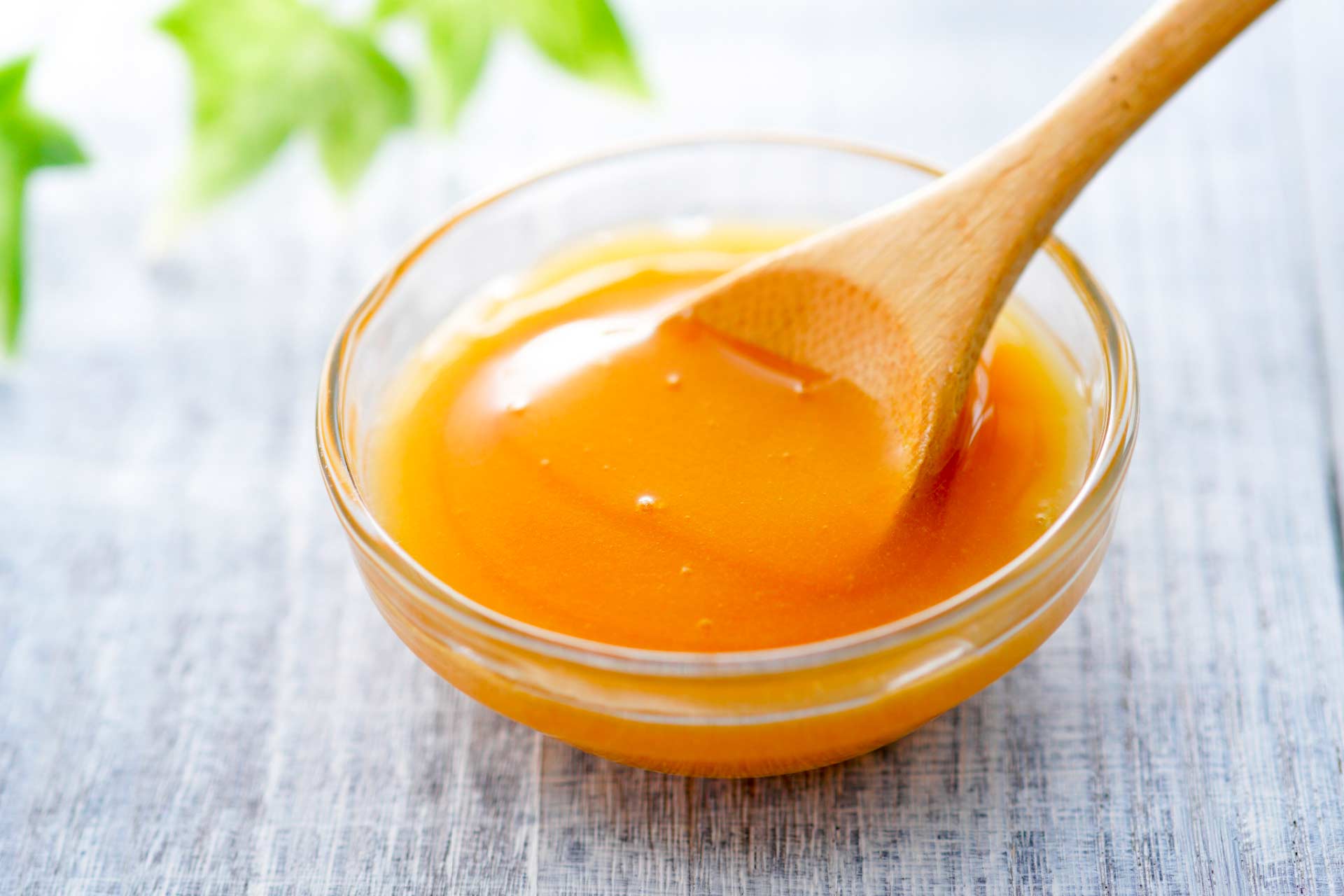
What makes Manuka honey different, and why quality matters
Manuka honey comes from bees that pollinate certain species of tea tree plants in Australia and New Zealand. The honey has a different appearance than you may be used to, with a thicker consistency and cloudy yellow color thanks to the bees’ diet. The bees’ diet also appears to give Manuka honey extra oomph when it comes to potential health benefits, but like with any other ingredient, quality matters.
“We import premium grade UMF 15+ Manuka honey directly from the source in New Zealand,” says Danny Pollack, Bespoke CEO. “There aren’t many other companies combining CBD and Manuka honey to begin with. Among the products that are available, ours is on the higher end when it comes to UMF grade, setting us apart from the competition.”
These new products join Bespoke’s line of hemp products containing CBD, CBG and CBN.
Danny pointed out the Manuka honey base is also very flavorful—his favorite way to consume it is in his tea.
“We offer several different flavors in other Bespoke hemp tinctures, including berry and citrus flavors. They taste great, but you still get that little bit of an aftertaste—that earthy hemp flavor that is off-putting to some people,” Danny said. “However, with the Manuka honey tincture, you really get the sweetness of the honey without that aftertaste of hemp. It smells and tastes great.”
Indeed, Manuka honey not only tastes good, but is also gaining attention for its unique chemical profile and health potential above and beyond other types of honey.
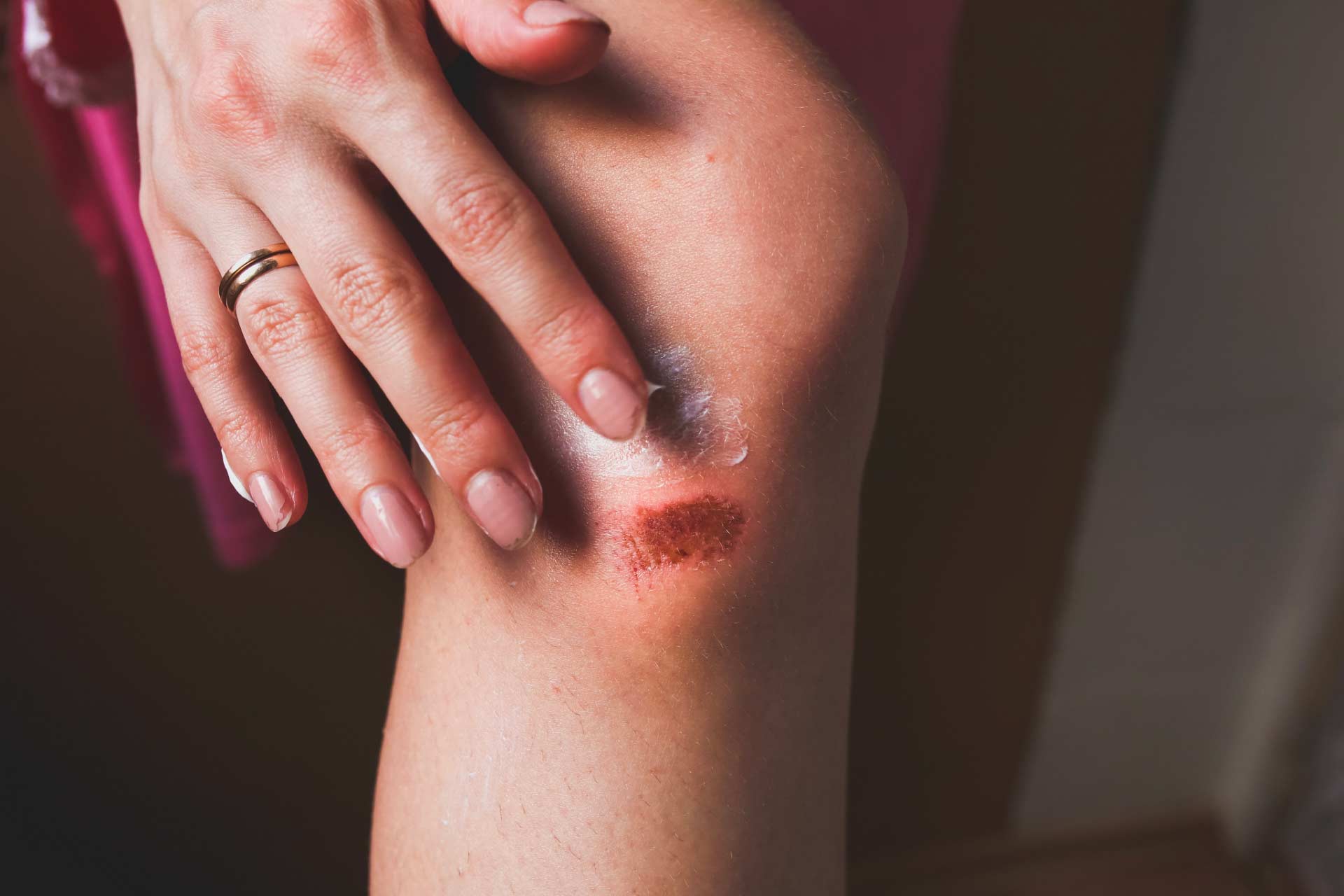
Benefits of honey for healing
Last summer, Leaf411 co-founder and CEO Katherine Golden, RN, learned firsthand about the healing power of honey when she volunteered with the City of Denver’s COVID testing program for the homeless population.
“The other nurses and I also volunteered in the day clinic which provides general medical care for the homeless. The most requested treatment was wound care. It was fascinating to see the use of honey sheets in the clinic to promote rapid healing,” Katherine said.
In fact, honey has been used medicinally for thousands of years to treat skin wounds and bacterial infections, though research has only recently begun to fully understand the underlying mechanisms.
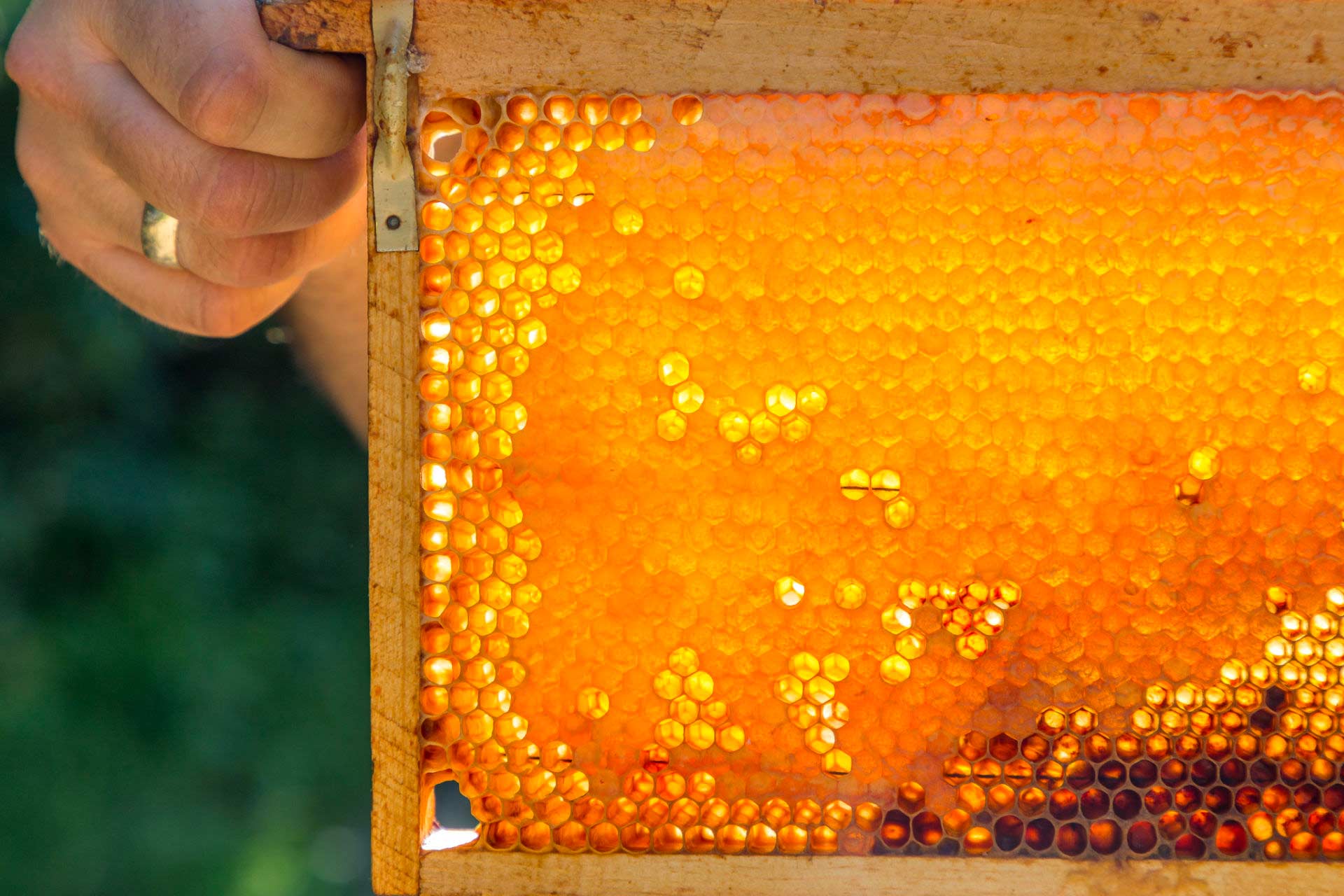
While honey may look like a simple product, studies have found that it’s quite complex, made up of over 181 different substances including natural sugars, vitamins, minerals, enzymes, amino acids, polyphenols and even hydrogen peroxide. Together, these ingredients have measurable antibiotic potential, as described in an International Journal of Microbiology article:
“Many factors have been shown to contribute to the antibacterial activity of honey, such as its high viscosity, mostly due to a high sugar concentration and low water content, which helps to provide a protective barrier to prevent infection. In addition, the mild acidity and hydrogen peroxide content have obvious antimicrobial effects.”
Other research has shown that honey may have anti-inflammatory and antioxidant properties, can serve as a useful tool when managing coughs and GI issues, and also may help with mouth sores that occur as a side effect from radiation therapy.
What level of Manuka honey is best?
Of course, not all honey is the same. The bees’ diet, along with environmental factors, impact honey’s antibacterial properties.
Even within the world of Manuka honey, quality matters, with a UMF grading system used to indicate the potency and antibacterial activity of the honey. The UMF rating can range from 5 to 25+, with a higher number indicating more of the beneficial compounds are present. You can learn more at this link.
Bespoke Extracts uses premium UMF 15+ Manuka honey sourced directly from New Zealand, which contains optimal levels of leptosperin, methylglyoxal (MGO), and other compounds that are unique to this product and contribute to its anti-inflammatory and antibacterial properties.
How to use Manuka honey infused CBD for wellness and recovery
Both hemp and Manuka honey share anti-inflammatory and anti-bacterial properties, so it’s not surprising to see the two ingredients appearing more frequently together in products geared toward wellness and recovery.
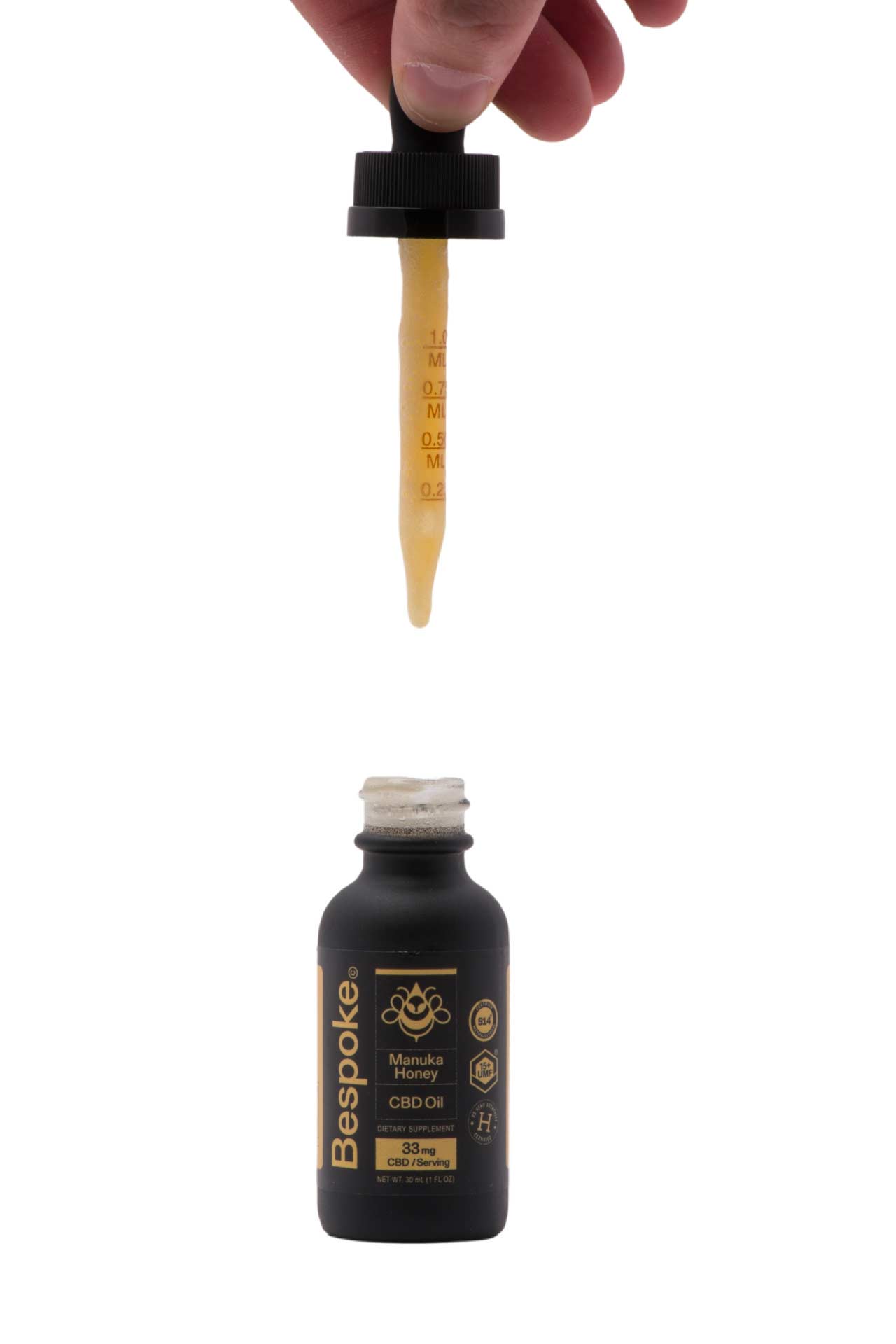
CBD Manuka honey tinctures work much like other traditional hemp CBD tinctures, providing more generalized relief from chronic conditions like pain, inflammation, insomnia and anxiety.
- Most people will feel effects within 30-90 minutes, with effects lasting 4-6 hours.
- If you are new to CBD, it is best to start with the lowest dose possible (we recommend 5mg).
- Not feeling effects yet? We suggest sticking with the same dose for at least 3 days Before increasing your dose.
- Build up your dose by adding 5mg every 3 days and slowly work your way up until you achieve symptom relief.
- If you are experienced at using CBD tinctures, you can start with your current dose or even a little less and work up from there. Not all products are created equal and taking a little less to start helps avoid potential side effects.
- Some people may find that CBD tinctures cause drowsiness, diarrhea or appetite changes. We suggest first trying new CBD products at home when you don’t have a busy schedule, just in case you have any of these side effects.
Honey, just like CBD and many other natural compounds, may interact with other medications, in particular anticoagulants like clopidogrel (Plavix) and warfarin (Coumadin), as well as certain anti-platelet drugs. If you are unsure whether your medications will be affected by CBD-infused Manuka honey, call our Leaf Nurses at 844-LEAF411 (844-532-3411) for answers to your questions, at no cost to you.
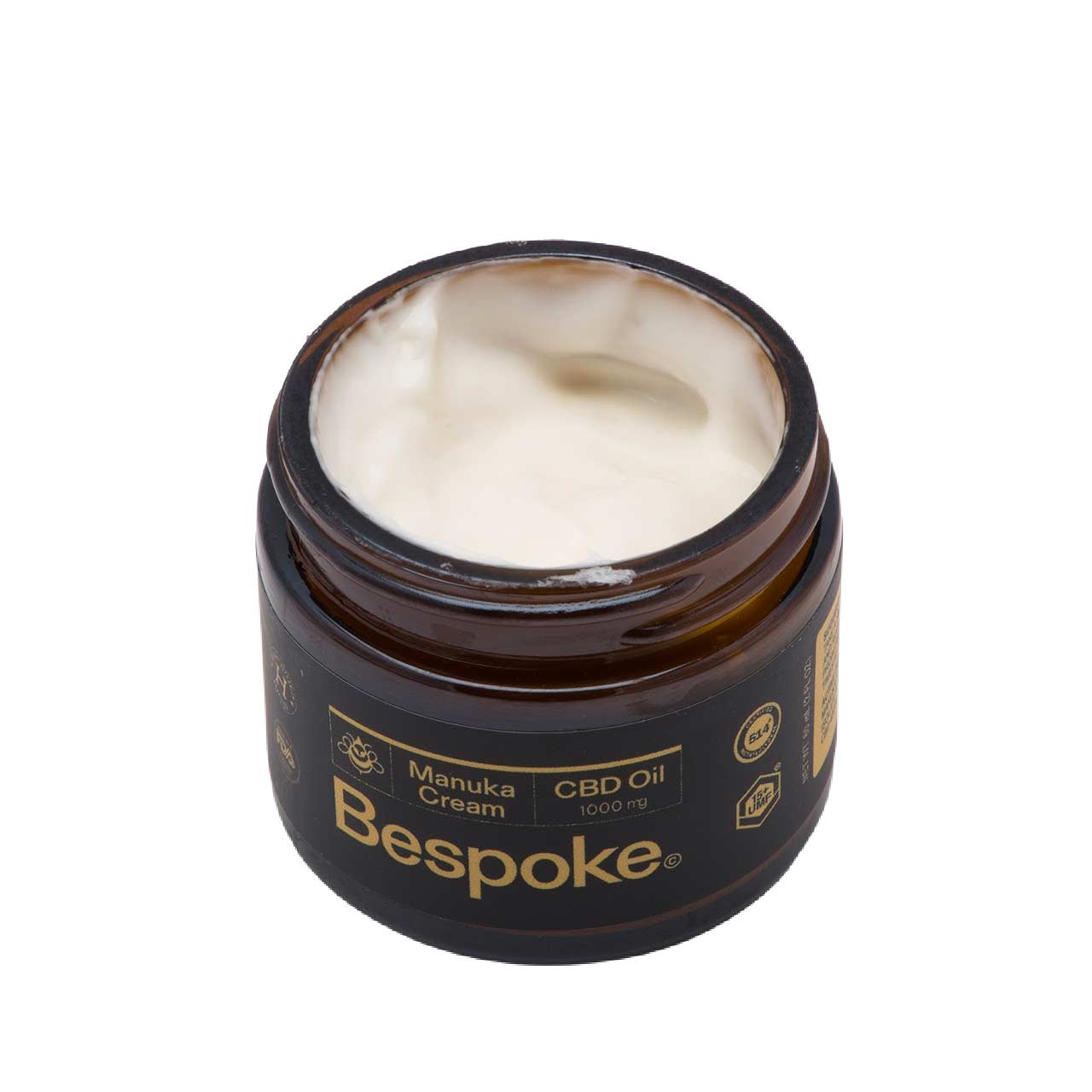
The combination of Manuka honey and CBD in products like Bespoke UMF15+ Manuka Honey Infused CBD Cream allow for anti-inflammatory benefits and pain relief without side effects that can possibly occur with ingestion. Topicals also provide a good option for targeted relief on the go, helping to relieve itching and soothe sunburns and other minor burns, as well as providing gentle relief for achy joints, muscles or other painful areas.
- Apply CBD Manuka honey topical cream to the affected area. Most people feel relief within 15-20 minutes, with the effects lasting several hours.
- Keep in mind the other ingredients in any topical products you use. Bespoke UMF15+ Manuka Honey Infused Manuka Cream also includes natural menthol and peppermint oil, so you should expect a cooling effect.
In fact, one thing we really appreciate about all of Bespoke’s products, including their CBD, CBG and CBN lines, is that they include a full list of ingredients and Certificates of Analysis (COAs) on their website.
Bespoke also offers discounts for frontline workers, U.S. military veterans and people aged 55 or older, as well discounts for shoppers who sign up for emails. Check out the Bespoke homepage for more details.
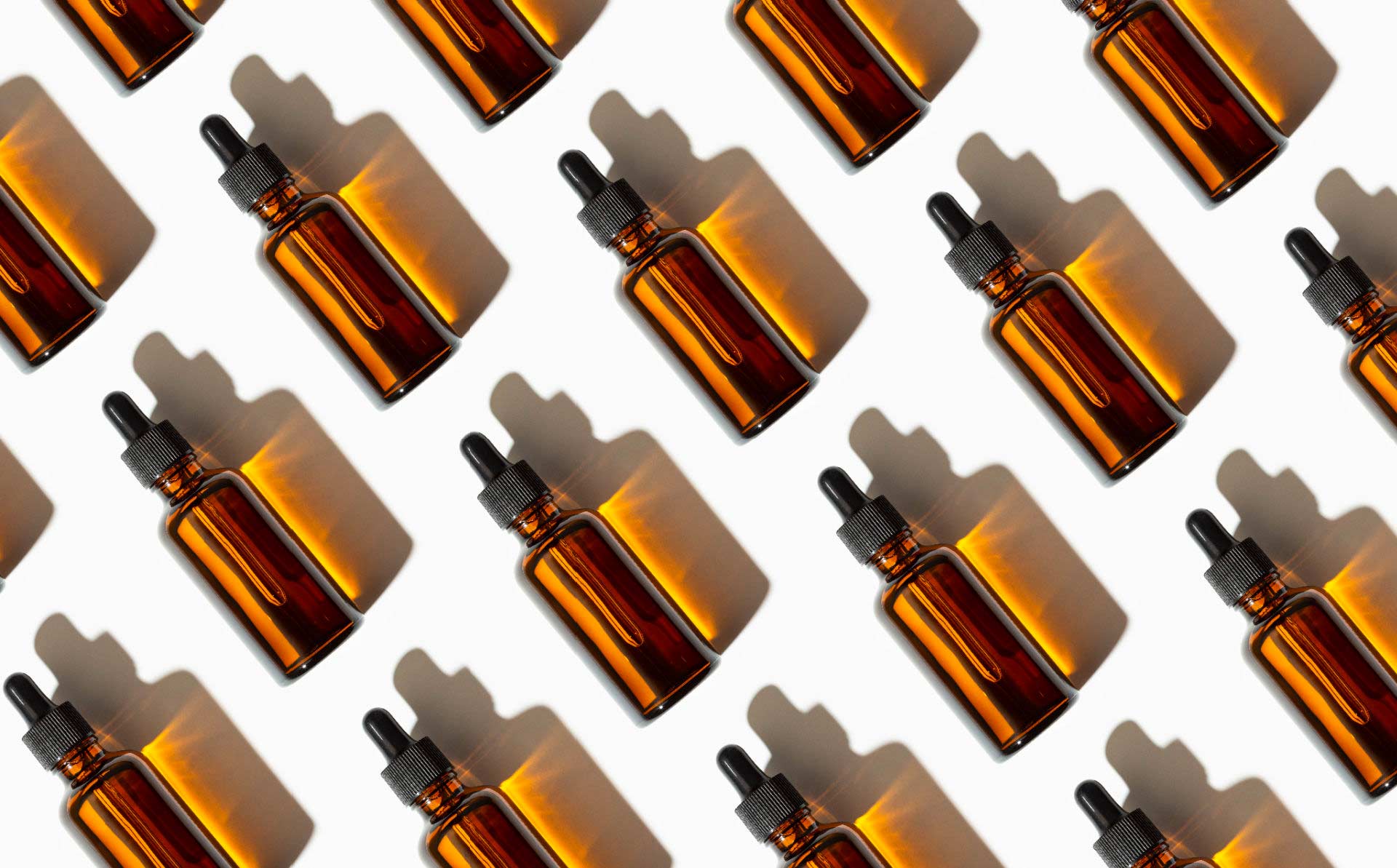
Sorting through today’s hemp CBD options
Manuka honey is only one of many natural ingredients showing up in today’s hemp products. While these products offer exciting potential, we recommend starting low with your dose and going slow to find your optimal dose.
Also, we recommend consulting with your primary care provider before adding CBD, Manuka honey or other supplements to your regimen to ensure there are no potential medication interactions or other concerns like an allergy to honey.
Our fully-licensed Leaf RNs can also help answer your questions at no cost to you. Call the Leaf411 hotline at 844-LEAF411 (844-532-3411) or chat us from our home page during hotline hours, Monday-Friday from 8:00 a.m. to 7:00 p.m. MDT.
The Leaf411 cannabis nurse hotline provides free, anonymous education and directional support to the general public about the safe use of legal cannabis. We partner with select business members who meet our rigorous standards to extend our education and outreach efforts.
How to Store Your Hemp CBD Products
We talk to experts about CBD expiration dates, and get their tips for storing hemp CBD for product potency and lifespan
Medically reviewed by Katherine Golden, RN
Written by Denise Rustning
We’ve all been there before—eyeing a recently expired hemp CBD product in our cabinet, wondering if it is still safe or if it will be as effective as when we first bought it.
This dilemma prompted us to ask manufacturers of high-quality hemp for their tips on storing CBD to ensure product quality and potency over time. We also asked about expiration dates, as well as what not to do when it comes to storing hemp CBD.
These hemp experts are made up of some of our own fully-vetted Leaf411 business members who manufacture hemp CBD products, as well as a few other industry leaders suggested to us by Alan Greenberg, Founder and CEO at CBD Garage. (See the bottom of this post for a complete list of hemp industry professionals who shared insights.)
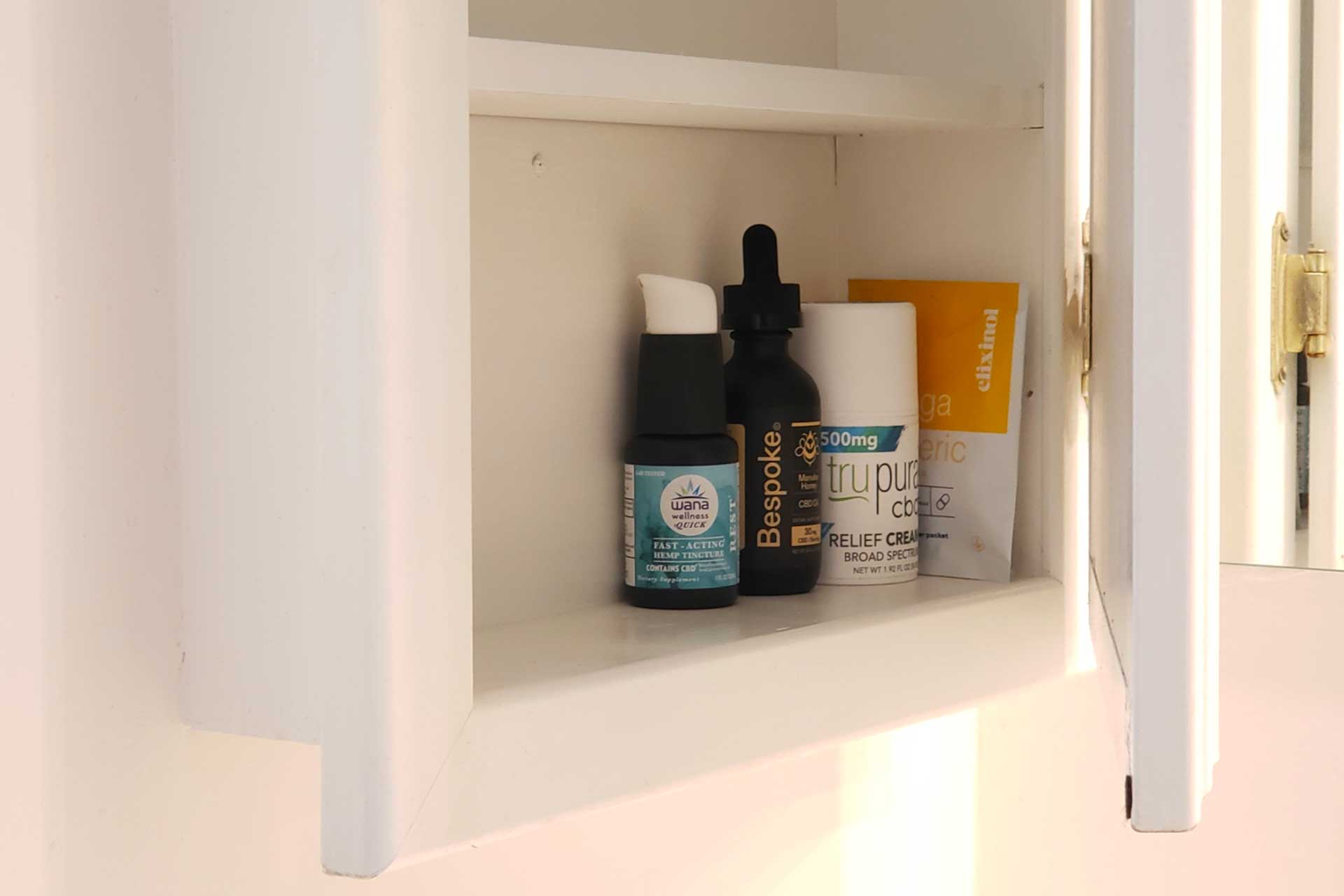
Hemp CBD products stored in a cool, dark area. Products pictured include Wana Wellness Rest fast-acting hemp CBD tincture, BeSpoke Manuka honey-infused CBD tincture, trupura CBD Relief Cream, and Elixinol Omega Turmeric CBD capsules.
Top tip: Store hemp CBD in a cool, dark, dry area
Across all hemp CBD categories, the hemp experts agreed that storing products in a cool, dark area improves product lifespan. Fortunately, most hemp CBD products are packaged in amber or solid-colored containers that block light, making it easier for consumers to ensure a dark environment.
A dry environment can help prevent mold; however, with hemp CBD flower, an overly dry environment like the refrigerator can cause the product to dry out prematurely. (See below for tips on storing hemp flower.)
Avoid sunlight, heat and excessive exposure to air
Heat and sunlight are the biggest culprits when it comes to CBD degradation. While it may seem easy enough to avoid storing your hemp CBD under these conditions, it’s worth paying attention to special situations, like when you bring your hemp CBD with you when traveling.
CBD can also break down faster when exposed to air for a long time due to oxidation—for example, if a hemp product is left open on a countertop for days at a time. To prevent this from happening, you will want to store your hemp CBD in its original container with the lid tightly closed.
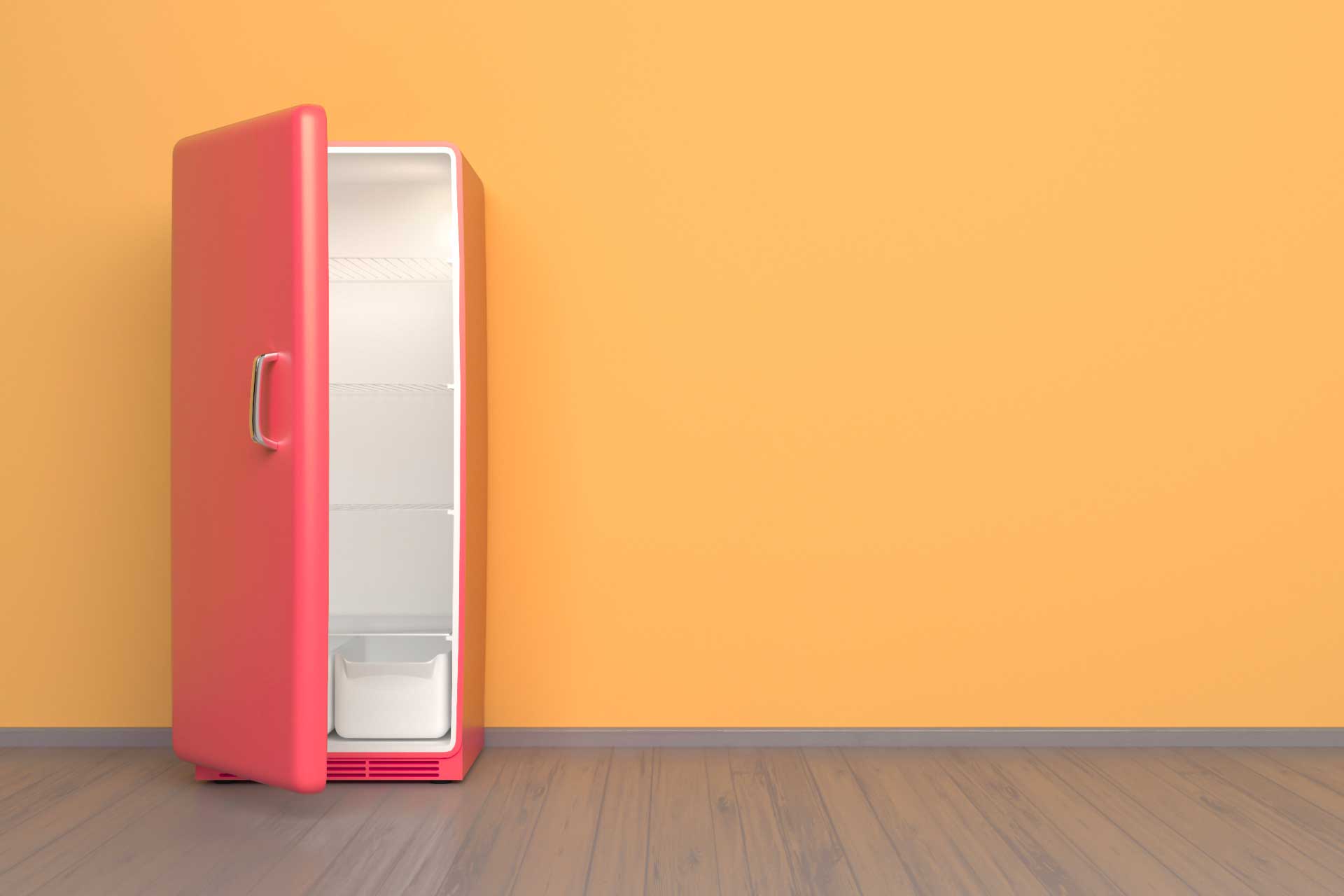
How cool is cool enough?
We can hear what you’re thinking: “When you say ‘cool,’ just how cool is that? Is it better to store my CBD in the fridge?”
Room temperature works perfectly well for most hemp CBD products. Cannabinoids from the hemp plant (CBD, CBG, CBN and others) are oily by nature. Most oils, including CBD oil, are shelf-stable at room temperature and do not require refrigeration.
Also, many hemp CBD tinctures use MCT oil, safflower oil, grapeseed oil, or olive oil as carrier oils—the base that the CBD is added to. You can think about how these oils are commonly stored unrefrigerated on dark pantry shelves—the same rules apply to CBD hemp products made with these ingredients!
In fact, in some cases, an oil-based hemp CBD tincture liquid may become too thick or difficult to use if refrigerated.
On the other hand, for some products like pills and capsules, refrigeration could extend the product’s lifespan. For example, Lauren Stall from Trill Pills says, “We only state to customers one-year shelf stability out of the fridge since that is certified by the state. However, my personal experience is that Trill Pills can be kept in the fridge for longer with no deterioration.”
Does hemp CBD stay good past its expiration date?
For hemp CBD products made in Colorado, the state sets a standard one-year shelf-stable expiration date. However, most high-quality hemp products may remain good for up to a year after the expiration date has passed as long as they have been properly stored.
Now that we’ve covered some general questions, let’s dive into the best ways to store hemp CBD tinctures, edibles, topicals, flower, vapes and transdermal products.
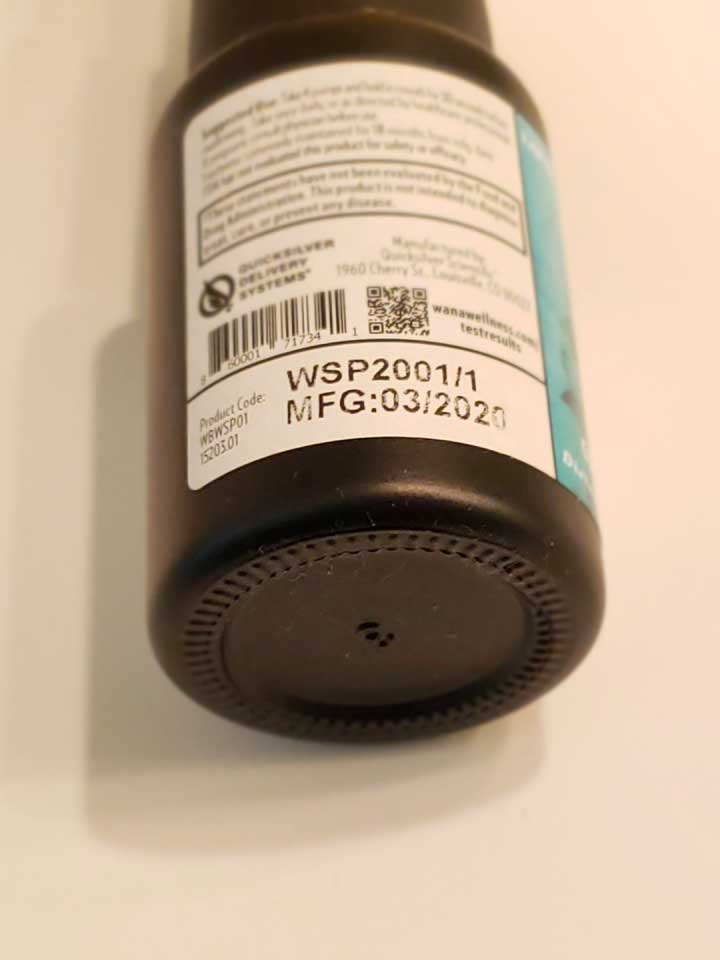
Wana Wellness Rest Quick hemp tincture bottle showing manufacture date. The tincture utilizes nanotechnology to more rapidly deliver CBD. More info here.
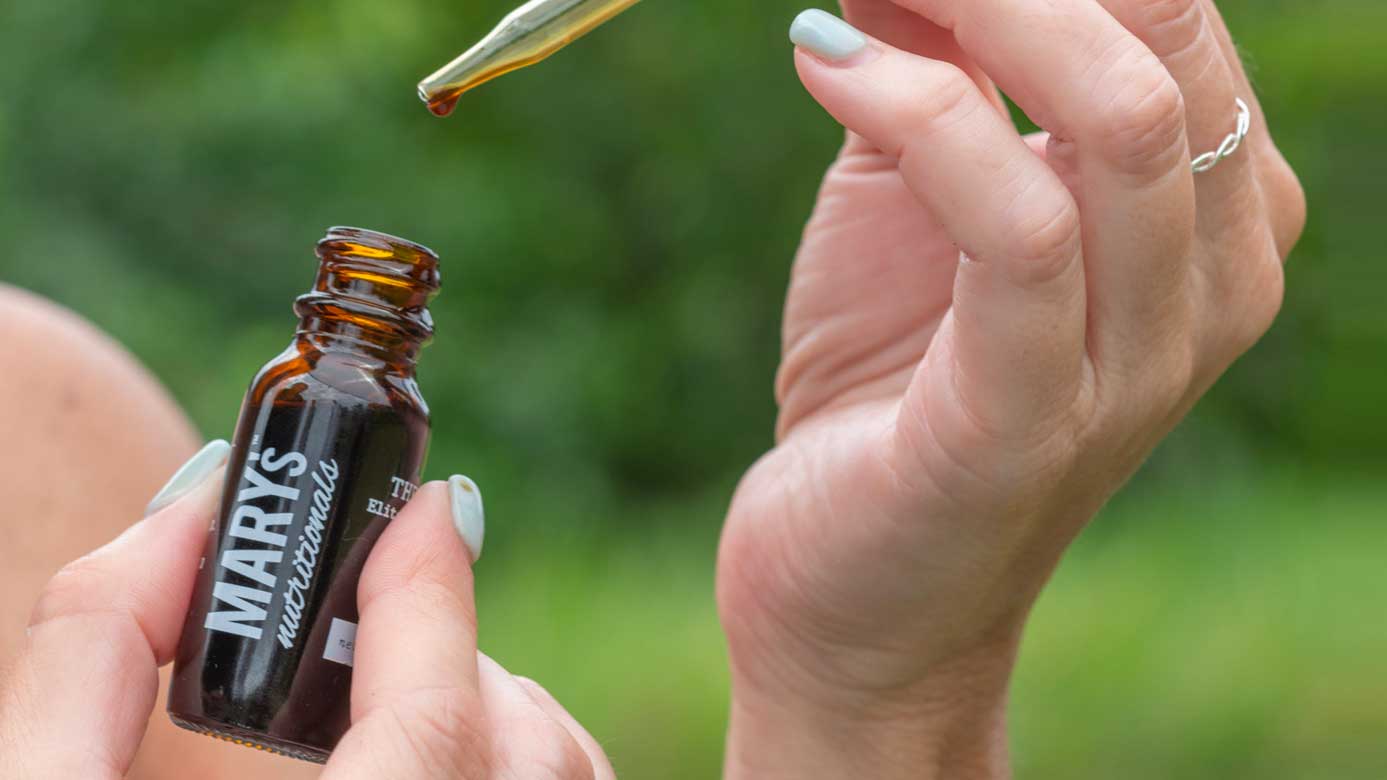
Mary’s Nutritionals Remedy full-spectrum hemp CBD tincture. More info here.
How to store hemp CBD tinctures
- Store in a cool, dark, dry area. (One exception is Wana Wellness Quick hemp tinctures, which can handle warmer temperatures due to their proprietary manufacturing technology.)
- Avoid leaving tinctures in sunny areas like on a windowsill or in a hot car.
- Shake tincture before using.
- When using a tincture dropper, do not let it touch your tongue or mouth where it could pick up bacteria that would then be transferred to the bottle. If your dropper touches your mouth or other unsterilized surfaces, it can be cleaned using soap and water and rinsing thoroughly before returning it to the bottle.
How to store hemp CBD edibles
- CBD gummies, chocolates and other hemp-infused edibles are just like any other food product when it comes to storage and product lifespan. The hemp CBD is relatively stable, but other ingredients may have additional considerations. For example, Mike Hennesy, VP of Innovation at Wana Wellness, points out that gummies may begin to dry out and lose their soft consistency over time, particularly in arid climates in places like Colorado or Arizona.
- Make sure packaging is always tightly closed to help reduce product drying out. For items like a half-used chocolate bar, store the remaining product in a sealed ziplock bag.
- If an edible tastes or smells “off” or has mold on it, throw it out. You may also want to contact the manufacturer if you believe the product spoiled prematurely despite being correctly stored.
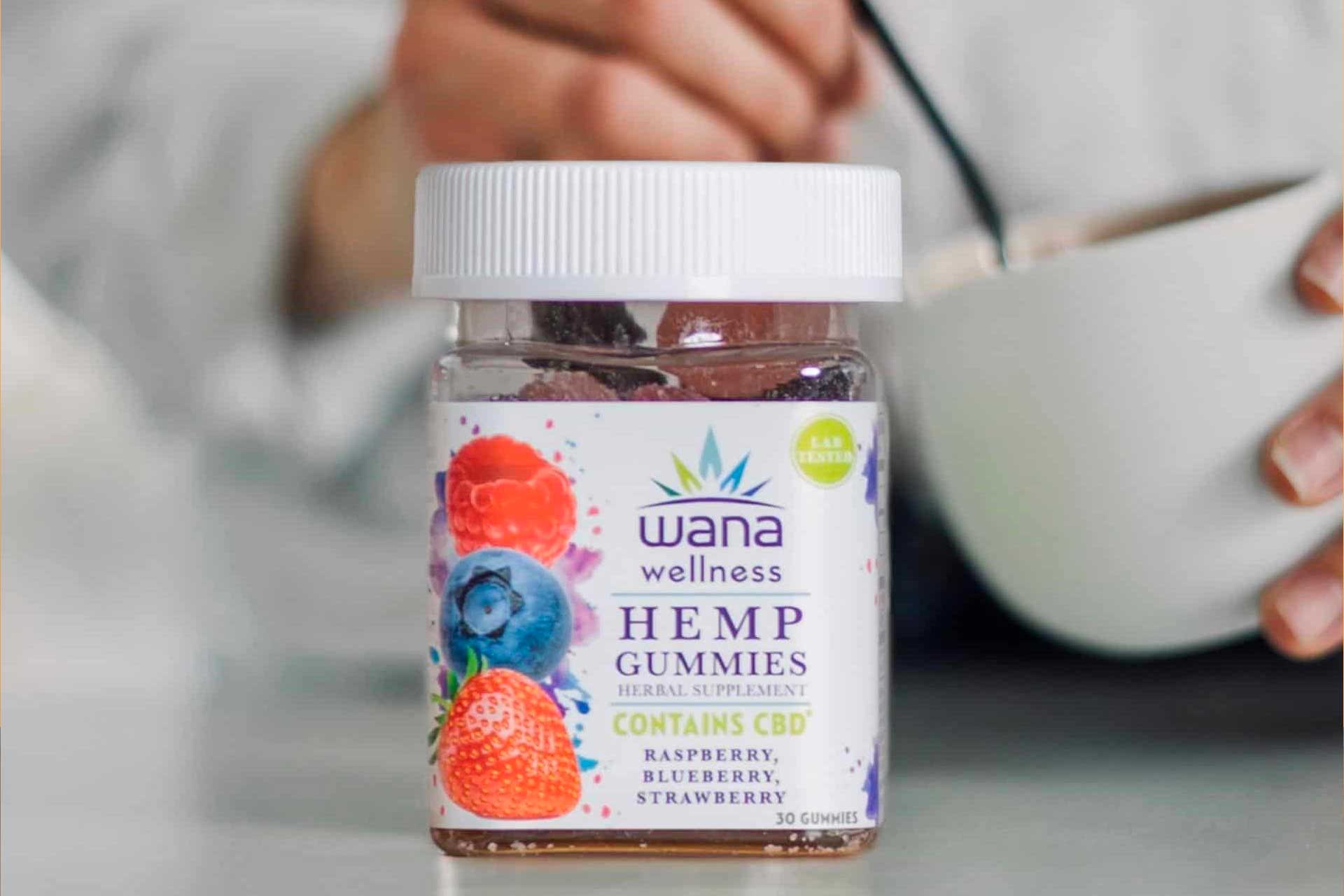
Wana Wellness Mixed Berry hemp gummies. More info here.
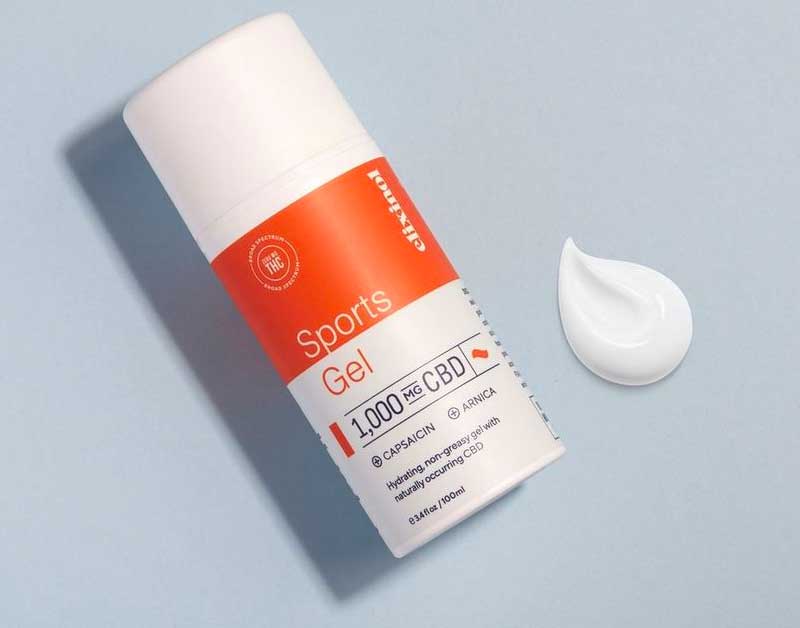
Elixinol Sports Gel topical containing CBD, capsaicin, arnica and other botanicals. More info here.
How to store hemp CBD topicals
- Store at room temperature away from direct sunlight.
- Always replace and tighten the lid on the container after use.
- If possible, use an applicator like a tongue depressor or firm cotton tip to scoop topicals out of a jar, instead of using your fingertip. This will help prevent bacteria from your hand getting into the product.
How to store CBD transdermal patches
- Store at room temperature away from direct sunlight.
- Use the transdermal patch soon after opening the package, or put the unused patch in a sealed ziplock bag away from light.
- If you are cutting a patch in half or quarters for a smaller dose, then store the remaining unused portion in a sealed ziplock bag, says Jeremy Riggle, PhD, Mary’s Nutritionals. “If stored correctly, the patch portions will stay good for up to a year. If the half or quarter sections are not stored properly, then its shelf life drops to a few months.”
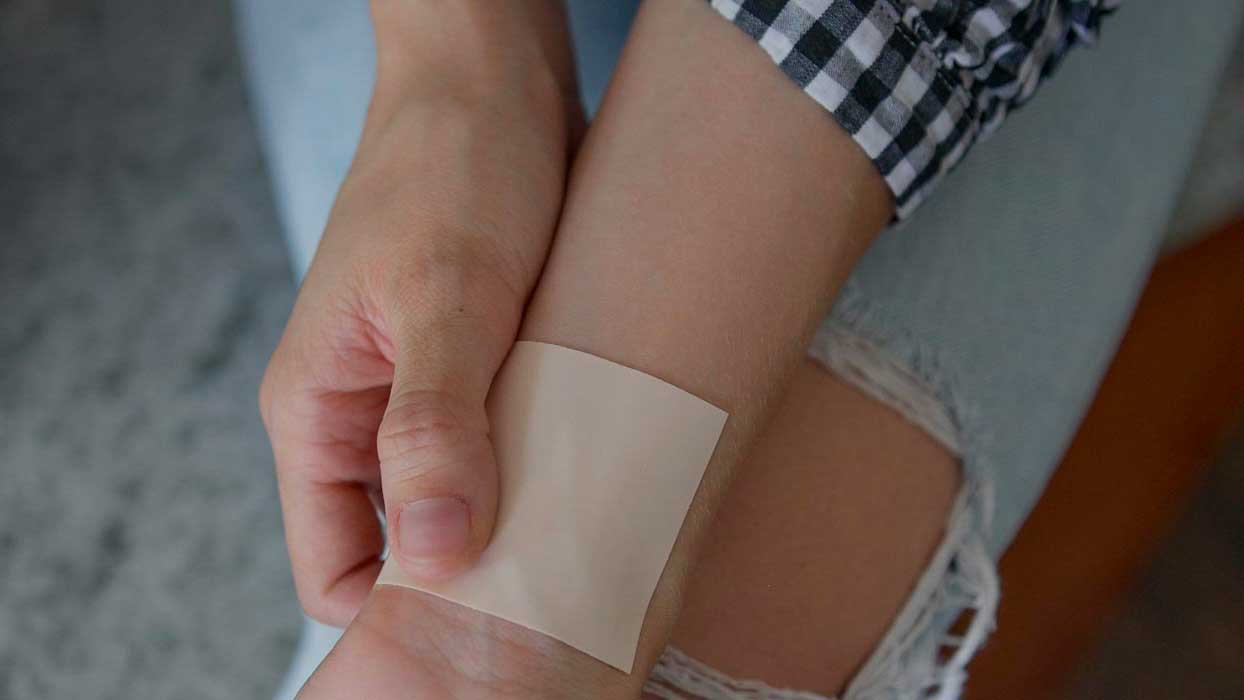
Mary’s Nutritionals hemp CBD transdermal patch allows cannabinoids to be absorbed continuously throughout the day. More info here.
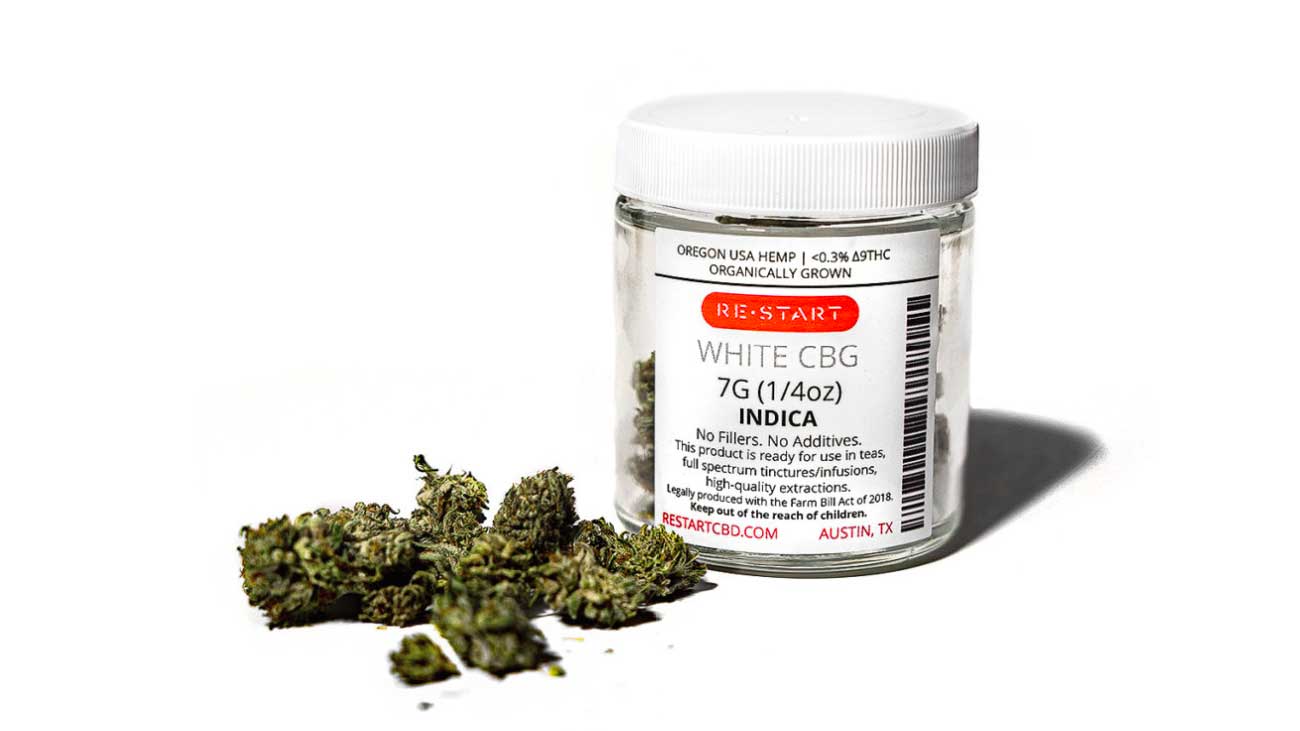
RESTART CBD hemp flower which can be smoked or vaped to provide faster onset and offset of hemp CBD effects. More info here.
How to store hemp CBD flower (buds) for freshness
- Store in an airtight glass container in a cool, dry area.
- Avoid storing in direct sunlight.
- For a partially smoked hemp pre-roll, snuffing it out by putting it in an airtight container (glass jar or the plastic tube it came in) is better than stubbing it out (grinding the end on a hard surface the same way people put out cigarettes) according to RESTART CBD co-founder and CEO Shayda Torabi. Airtight storage tubes can be found online by searching the term “doob tube.”
- When it comes to humidity and rehydrating bud, some people turn to humidity packs; however, Torabi urges caution, noting that if not used correctly, humidity packs can cause hemp CBD flower to mold, making it unsafe to use. “If you want to re-hydrate your bud, do it with small amounts of flower you are going to use within 48 hours. Don’t leave your humidity pack in the jar with your flower for extended periods of time, and make sure to follow the instructions on the humidity pack to ensure the best experience,” Torabi says.
How to store CBD vapes
- Store in a cool dry area, in an upright position to reduce the risk of leakage.
- Do not leave your vape in a car since extreme temperatures can impact the consistency of the vape liquid, as well as product quality.
Other product ingredients also make a difference
Your favorite CBD chocolate bar or flavored tincture contains hemp-derived cannabinoids, but it also contains other ingredients that impact shelf stability and overall product lifespan. Other ingredients—water-based ingredients in particular—can limit product lifespan in some cases.
Ryan Lynch, co-founder of Boulder Hemp, explains that high water content more readily supports microbial growth if the product has not been pasteurized or sterilized. Oil-based products, on the other hand, should last longer due to the lack of water content.
You only need to look as far as your kitchen to see examples of how water content impacts shelf life. Most foods with higher water content, like fruits and meats, have a shorter lifespan. They are either stored in a refrigerator or are canned, which sterilizes them and makes them shelf-stable until they are opened.
On the other hand, cooking oils are stored at room temperature even after opening. The lack of water, combined with a lack of sugar or other ingredients, makes ingredients like olive oil and MCT oil shelf-stable at room temperature for long periods of time. These are the same oils used in many hemp CBD tinctures.
In short, when thinking about how to store your hemp CBD, check the manufacturer guidelines and consider all the ingredients in your product to help guide you.
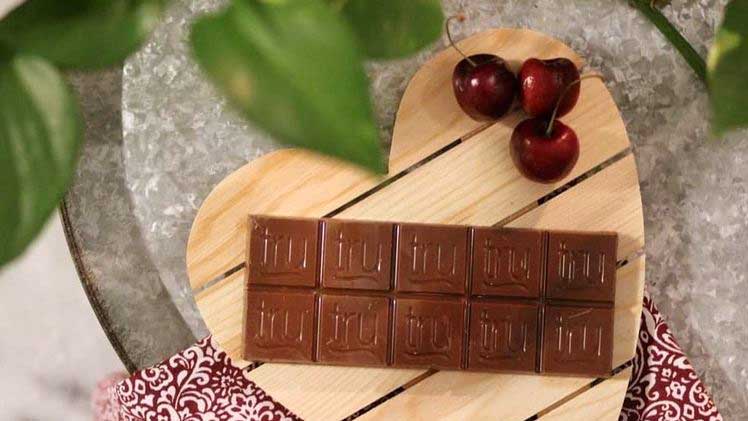
trupura CBD chocolate-covered cherry flavored chocolate bar. More info here.
Need hemp CBD answers? We can help at no cost!
Our Leaf Nurses are happy to answer your hemp CBD questions about any product on the market today—the brand does not need to be one of our member businesses, either. Call our free hotline at 844-LEAF411 (844-532-3411), or chat us from our home page during hotline hours, Monday-Friday from 8:00 a.m. to 7:00 p.m.
Hemp CBD manufacturers and retailers who shared tips for this post: Alan Greenberg, CBD Garage; Mike Hennesy, Wana Wellness; Jeremy Riggle, PhD, Mary’s Nutritionals; Shayda Torabi, RESTART CBD; Erika Sauerwein, Elixinol; Abigail Nueve, trupura CBD; Ryan Lynch, PhD, Boulder Hemp; Lauren Stall, Trill Pills
The Leaf411 cannabis nurse hotline provides free, anonymous education and directional support to the general public about the safe use of legal cannabis. We partner with select business members who meet our rigorous standards to extend our education and outreach efforts.

